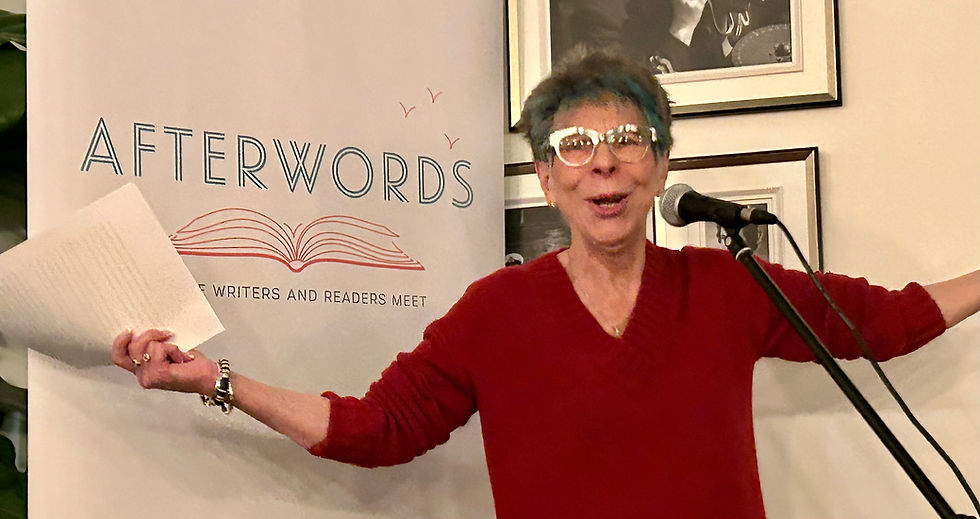A revelation in a 70 year-old letter
- Halina St James
- Jun 10, 2024
- 3 min read

In Poland, I danced with the man who gave me the most precious gift of all - pictures of my birth father, Stanislaw Zebrowski, and three of his letters.
Janusz Zebrowski is my second cousin, a man I never met until I went to Poland to meet my father’s family for the first time. Janusz’s father was my father’s brother. The two men wrote to each other a few times in the 1950s. It was hard, because while my father was in Canada, his brother was behind the Iron Curtain in Poland. Letters were read by the Soviets and sometimes lost.
Janusz gave me photocopies of four precious letters. They paint a picture of my father as a kind, caring man who tried to do what he could for his family and friends back in Poland. He sent medicines, dress fabric, even a bicycle.
It's certainly not the picture my mother painted of my birth father. My mother rarely spoke about Stanislaw, except once to say he drank and had violent rages. She never mentioned his family. She left my father when I was four years old. She cut him out of her life, and out of every picture she had of him. I never knew him, or what he looked like.
When I first heard of the letters, I hoped they would provide answers to questions I've harboured all my life.
I did get a fuller picture of my father. He loved his life as a logger in Canada. He invested in his own chainsaw. He cut trees in the winter, and helped put out forest fires in the summer. He enjoyed the life in the logging camps, even though alcohol was banned.
Family mattered to him. He worried about the health of his parents, and who would take care of the family farm if anything happened to them. He worried about the health of friends, arranging shipments of antibiotics on one occasion.
But what surprised me most was a reference to my mother, in a letter written in 1955 - three years after they split up.
Stanislaw wrote: “As for my madonna, she is roaming around Toronto. Recently I drove through Toronto. I even stayed three days, and I saw her, and she saw me. She wanted to walk up to me but I didn’t wait for her. I got in the car and drove off in another direction. Did she have such a bad life with me? Let her look for something better for herself.”
Instead of the answers I was hoping for, the letters simply raise more questions.
Why were my mother and my father in Toronto - at the same time? What were the chances of them running into each other? Did she try to make up with the man she told me was violent? Why did Stanislaw walk away?
My mother had been snatched by the Nazis from her home in Ukraine when she was 17. She never saw her parents or her country again. She married my father in a Displaced Persons Camp in Germany after the war. I was born in the camp, and from there we emigrated to Canada. Within a year she left my father for another man she had met in the camp, Frank Uzarowski, who became my stepfather.
Armed with letters and documents I found after mama died, I began writing a memoir, The Golden Daughter. In the process, I found my father’s grave in a small cemetery in Northern Ontario. That led me to his family, my family, in Poland.

When I went to Poland, the family organized a party to meet me. That’s where I met Janusz, and danced with him.
I may never know the real story about the relationship of Stanislaw and my mother, and the truth of how it ended.
What I do know is that my dancing partner Janusz and I are carrying on from where his father and my father left off. We are writing to each other. Who knows what other clues, or questions, the correspondence will unearth.



Comments